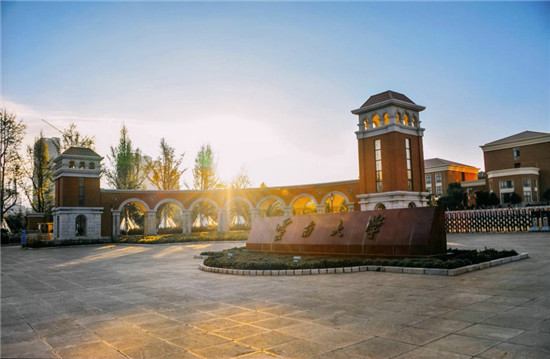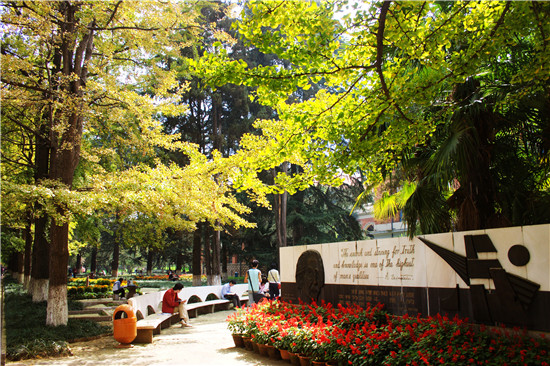About YNUBrief Introduction Yunnan University's (YNU) history can be traced back to 1922, when it went by the name of Private Donglu University. In 1934, the name was changed to Provincial Yunnan University, and in 1938, it was changed to National Yunnan University. The university is one of earliest comprehensive universities in the western border areas of China. In 1937, the well-known mathematician and educator Xiong Qinglai took up the post of university president. Since then, a great number of prestigious scholars have come to work at the university, blazing a trail which led to the university's glory days. In the 1940s, YNU had already evolved into a multifaceted university offering courses on literature, law, science, engineering, agriculture, and medicine, and it even developed a reputation abroad. In 1946, YNU was listed among the top 15 most influential Chinese universities in the world, according to the Encyclopedia Britannica.
In the 1950s, YNU's departments were reorganized. The aviation, architectural construction, law, and railway construction departments were incorporated into the Beijing Institute of Aeronautics (now Beihang University), Sichuan University, the Southwest University of Political Science and Law, and Changsha Railway University (now Central South University). Its engineering, medicine, and agriculture departments were split into independent universities such as Kunming University of Science and Technology, Kunming Medical University, Yunnan Agricultural University, and Southwest Forestry University. In 1958, YNU was put under the administration of Yunnan province by the national authority for higher education. In 1978, YNU was designated by the State Council as one of 88 key universities across the country.
Since the implementation of reform and opening-up, the university has made great progress. In 1996, YNU became one of the first universities to make it into the national 211 Program. In 2001, the university was designated as a key university in the development of the China's Western Development Program. In 2004, it was named a key university to be jointly developed by the Ministry of Education and the Yunnan Provincial Government. In 2006, 19 of the university's second-level indicators all received an “A” grade during an assessment program on teaching undergraduate students, and thus it was included on the national list of Universities for Excellent Undergraduate Education by the Ministry of Education. In 2012, YNU was singled out to take part in a project to develop the fundamental capacities of universities in central and western China and a project to develop the comprehensive capabilities of universities in central and western China. In 2016, the university joined the National “One University in One Province” Program. In 2017, it became one of first 42 universities that aim to achieve world-class status. In 2018, it was listed as one of 14 universities in central and western China to be primarily administered by the Ministry of Education, with the local provincial government helping to develop it.
Moving forward, Yunnan University will adhere to the principle “Wisdom from many, justice for all”, and continue working to improve its training, research, social services, cultural inheritance, innovation, and international cooperation capabilities, with the aim of becoming a comprehensive, research-intensive and world-class university with a high degree of influence in South and Southeast Asia.
|





